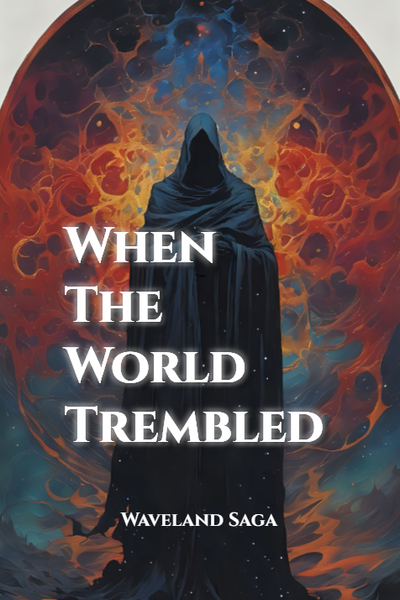President Foster – National Airborne Operations Center, somewhere over the Atlantic Ocean.
I sat in the heart of the Airborne Operations Center, my hands clenched tightly against the armrest of my chair. Despite my efforts to portray a calm demeanor, I couldn’t hide the uncertainty within me as I watched the multiple displays showing the hundreds of battlefields across the world. The live feeds showed a losing war, the ferocity of the enemy overwhelming our forces with sheer numbers. The tension inside the command center was palpable as each new report added another layer to the grim reality we faced. Communication lines constantly buzzed with frantic voices, each carrying news of another city lost, another nation fallen.
Chief of Staff General Hayes stood nearby, his face a mask of serene calm amidst the storm of chaos engulfing the planet. He nodded to a staffer who handed him a report, and after reading it, he turned to me. “Mr. President, we just lost contact with the United Kingdom. The last transmission we received from them was over an hour ago when they reported heavy fighting, but—they’re gone, sir.”
Closing my eyes, I placed my hands over my face, the exhaustion brought on by the news hitting me like a heavy weight. Taking several long moments to absorb the report, I looked up at him. “Keep trying to re-establish contact with them. We need to know if there are any survivors, any resistance still fighting.”
Dr. Emily Stanton, my Chief Scientific Advisor, approached me holding a tablet in her hand. Her hair was a mess and her eyes were bloodshot from a severe lack of sleep, but even exhausted as she clearly was, I could tell she still had a fire of determination inside her. “Mr. President,” she said, looking between me and the tablet she was holding, “I need to speak with you immediately.”
Nodding, I motioned for her to proceed. She took several deep breaths before launching into her explanation. “I have been carefully monitoring the enemy activity and—look here,” she said, showing me the tablet. “There are four large devices being transported by the invaders, one to each corner of the planet.” I saw that she was correct; the devices appeared to be large metal obelisks, each heavily guarded by hulking monstrosities.
“What does this mean for us?” I asked, not quite understanding the implications.
“I have spent the last hour monitoring the energy signatures emitted by these pillars currently being deployed around the world,” she explained. “At first, I thought these were bombs or some other type of destructive tool. They give off gamma radiation, but not just that, sir—they have a distinct signature that we’ve picked up on our satellite scans: dark matter.”
“Dark matter?” I echoed, still not fully grasping the significance.
“These aren’t bombs, Mr. President. If they were, they’d have enough energy to destroy the planet. The energy stored inside them is immense, and would cause a singularity if detonated,” she continued, showing a reading on the tablet that indicated the devices had the equivalent energy of several thousand megatons.
“Why would these invaders throw millions of their soldiers at us if they only intended to destroy the planet in the end?” I wondered aloud.
“They wouldn’t,” she affirmed. “If they wanted to destroy everything, they would have done so already. These pillars are designed to transform the planet. The energy configuration and their array suggest they’re meant to change Earth into a world where they can thrive, and we cannot.”
The room fell silent as the implications of her words sank in. “Is there anything we can do to stop it?” I asked, desperation creeping into my voice.
Stanton nodded slowly. “I have a theory, but it’s a long shot. We still have access to several nuclear warheads. If we can time it correctly, and detonate those in the upper atmosphere simultaneously with the activation of the pillars, it might be enough to disrupt the energy field they’re generating. The electromagnetic interference could throw off their calculations and give us a chance to fight back. The timing must be precise, and the effects are unpredictable. But it’s our best shot.”
General Hayes spoke up. “Emily, what are the chances this could cause a worse situation? What if they detonate instead or transform the world into an unlivable hellscape?”
Dr. Stanton turned to him, speaking clearly and loud enough for everyone to hear. “While I can’t say for certain what the effects on the planet will be if we disrupt their terraforming, I can say with absolute confidence that not doing so will lead to the downfall of humanity. If we don’t act, the world as we know it will end.”
She paused, then continued, “Best case, we destabilize the transformation process and buy ourselves time. Worst case—we could cause massive disruptions to our atmosphere. But given the alternative, we will almost certainly lose everything if we don’t act now.” She turned to me, her eyes earnest. “Sir, I need you to understand: if we do this, power across the planet will be wiped out due to the electromagnetic pulse from the nuclear detonations. We—we won’t survive.”
Taken aback by the revelation, it took me a long moment to respond. Finally, I nodded, understanding the gravity of the choice before me. If we did nothing, the invaders would create a planet we couldn’t fight back within. But acting meant certain death for everyone on this plane.
Sweat prickled on my back as I loosened my tie, trying to get air in the suddenly stifling room. What choice did I have? We were outmatched, already losing the war, and if these demons succeeded, all hope would be lost. Finally, I made my decision.
“Do it. Begin the preparations immediately. We don’t have a choice.”
Fifteen Minutes Later – National Airborne Operations Center
The atmosphere inside the command center was thick with tension as the remaining leaders from allied nations appeared on the screens before me. French President Dubois, German Chancellor Hildon, Russian President Ivanov, and Chinese Premier Wei all stared back at me, their faces etched with exhaustion and strain.
“Thank you for meeting with me during these dire times,” I began, taking a deep breath. “We are facing an unprecedented threat to humanity. I have received intel that indicates the enemy forces intend to radically transform our planet into one hostile for human life.” I nodded at Dr. Stanton to transmit the report and summary she had shown me earlier.
I watched as each of them read through the information, their eyes widening with alarm. “Our only chance at stopping them lies in our plan to coordinate a precision strike as they activate their devices. If we can disrupt the energy fields created by these pillars, we have a chance to stop the transformation.”
The multiple video feeds erupted with concern and questions. It took several minutes for the leaders to calm down enough for me to continue.
“My chief scientist, Dr. Emily Stanton, has sent our plan to each of you. It requires that we detonate several nuclear warheads in the upper atmosphere, timed precisely with the activation of their pillars.” I looked at each of the view screens, emphasizing the seriousness of the situation. “I have to be honest. We—” I gestured to myself and the others with me, “won’t survive this plan, but it may give humanity a chance to fight back.”
There was a long moment of shocked silence. Finally, Premier Wei broke the quiet. “This has a high risk, President Foster. Are you certain it will work?”
Emily stepped into view. “No, but this is our best chance, Premier Wei. Those pillars will transform our planet. If we do nothing, we will lose everything.”
Hildon nodded slowly. “Germany will support this plan. We will coordinate our strike with yours.”
Dubois and Ivanov followed suit, their voices resolute despite the clear fear in their expressions. “We are also with you.”
Wei seemed dubious but after several long moments, he too agreed. My heart swelled with grim determination. “Thank you all. We will synchronize our efforts. General Hayes will coordinate with your commands. Let’s show these demons that humanity will not go quietly into the night.”
Thirty Minutes Later – National Airborne Operations Center
The energy in the room was electric with activity. Technicians worked furiously at their stations, coordinating the launch of nuclear warheads from silos around the world. The atmosphere was charged with a determined urgency and desire to succeed for the sake of humanity.
General Hayes approached me. “Mr. President, all systems are ready for launch. We await your command.”
Standing up, my resolve unshakeable, I turned to him and smiled, knowing these would be our last moments together. “It has been an honor, General.” I reached out my hand, and he took it, only letting go when I did. Ready for what was to come, I gave the command. “Launch.”
The order was given, and moments later, bright lights streaked through the video feeds from our satellites above. Across the sky, ballistic missiles ascended to their designated points in the upper atmosphere. We watched as the massive pillars also pulsed with energy, building to a release calculated to within milliseconds. The tension was palpable as everyone held their breath, waiting for the outcome.
High above Earth, the missiles reached their zenith and detonated in blinding pulses of light. The night sky lit up brighter than the sun, casting a surreal glow over the planet. The energy waves crashed outward as the pillars released their own pulse of red light, clashing in a brilliant cascade of iridescence. Then the video feeds cut out as we lost communication with the satellites.
The room erupted into cheers as the first part of our plan succeeded. Time would tell if the effects on the planet were positive or negative. For the first time since the invasion began, humanity had struck a significant blow.
The celebration was short-lived. The electromagnetic wave that cascaded through the atmosphere hit us moments later, and the plane lost power. Lights flickered off, and I heard the engines power down, leaving an eerie silence in the reinforced room.
I felt the plane dip in altitude and ran for the Operations Center door, bolting through the narrow hallway to the nearest window. I needed to see outside before we crashed. I wanted to know, even in these final moments, what we had left behind.
In awe, I stared outside as the fabric of space and time warped and bent. The ocean below shook violently, and the sky turned into a kaleidoscope of colors. The planet around us transformed, the night sky changing as stars rushed past, drastically different from those I had known all my life.
Dr. Stanton rushed over, her eyes wild. “Mr. President! The energy disruption is causing a temporal and spatial distortion. We—we’re being pulled into—something! A new universe, maybe. Hold on, sir!”
The world around us blurred, twisting and distorting in a cascade of colors, light, and sound. It felt as though we were being torn apart, every atom protesting the strain. Then, with a blinding flash of light, everything settled.
The plane was still falling. We didn’t have power. But the world itself had calmed. Outside, I saw a new land, a new sky. Everything had changed, and I could only hope it was for the better.
In those final moments, I looked at Emily, seeing the determination and hope in her eyes. “We did what we had to do,” I said. “Humanity will remember what we did to secure our future.”
She nodded, tears in her eyes. “We gave them a chance, sir. Thank you for believing in me.”
As the plane fell from the sky, we held onto each other, finding solace in our embrace and in the knowledge that we had made a difference. I smiled softly, remembering my family, my son who would be turning twelve this year. If only I had more time with him, to teach him what it meant to be a man, just like my father had done for me.
The water below rushed up to meet us, but we faced it with a sense of peace, knowing we had fought until the end. And then, everything went dark.











Comments (0)
See all